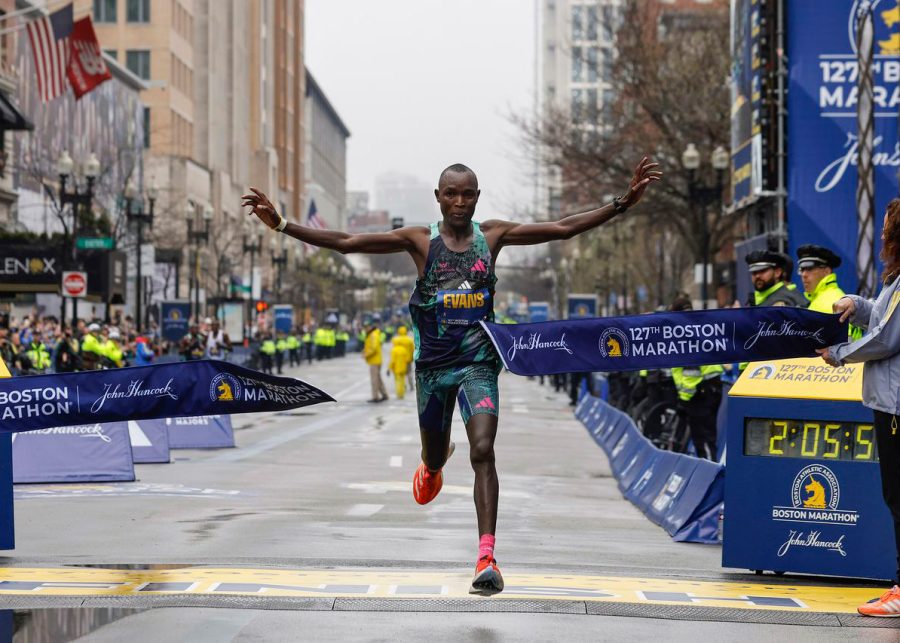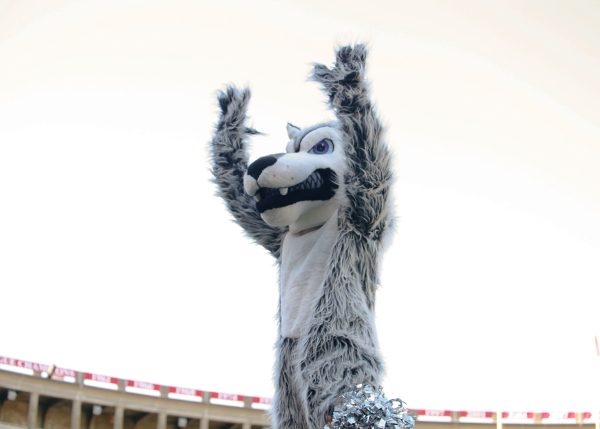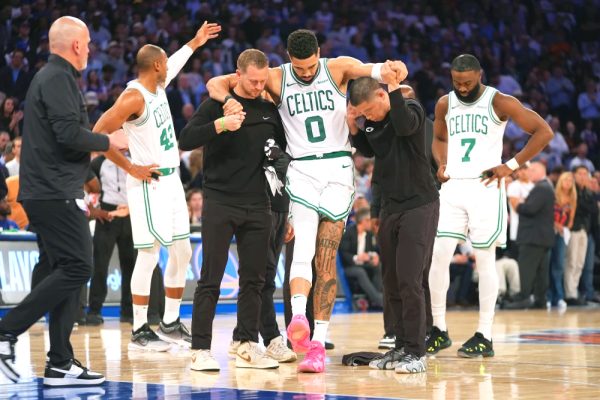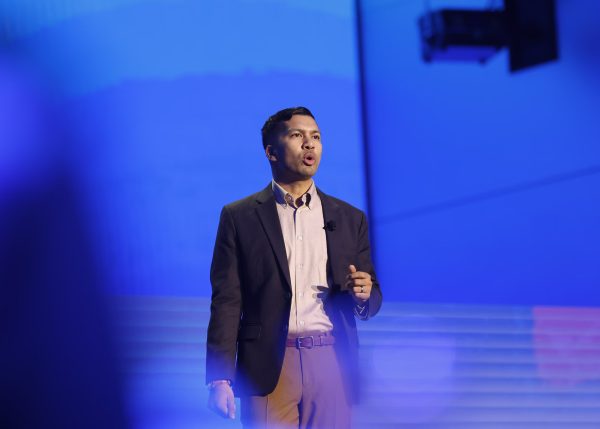Glory and Controversy at the Boston Marathon
On Monday, April 17, the 127th Boston Marathon took place, hosting nearly 30,000 athletes from more than 100 different countries. The notoriously difficult 26.2-mile race took off in Hopkinton, up Heartbreak Hill and ended near Copley Square in Boston. On Marathon Monday, inclement weather boasted wet streets and foggy skies. Nevertheless, half a million spectators showed up to support those who attempted what only 0.01 percent of Earth’s population has accomplished: finishing a marathon. The Boston Marathon has always been a consistent presence in many people’s lives; however, this year held a multitude of surprises.
As one of the world’s most prestigious marathons, the Boston Marathon consistently attracts the most elite runners from all over the globe. This year, Kenyan legend Eliud Kipchoge, who currently holds the marathon world record of 2:01:39 and has won 15 out of the 17 marathons he has run, was the favorite to win.
With Kipchoge considered to be the Tom Brady or Michael Phelps of marathons, analysts were shocked when Kenyan long-distance runner Evans Chebet won the marathon for the second year in a row. Having triumphed over Kipchoge, who placed sixth in his slowest marathon finish ever, Chebet tells the reporters after the race, “I’m happy because I won last year and this year, so maybe next year, I’ll come back again.”
This year’s diverse line-up featured many other impressive figures. In the women’s division, Kenyan middle-distance runner Hellen Obiri secured first place, in only her second marathon ever. Switzerland’s Marcel Hug and the United States’ Susannah Scaroni headed their respective wheelchair divisions. For the first time, the Boston Marathon had a nonbinary division, which Vermont medical student Kae Ravichandran won with a recorded time of under three hours.
Regardless of the competitive nature of the top athletes, most enter the marathon with motivations besides simply winning. For some, the race is a way to demonstrate their support towards and fundraise for different organizations.
Boston Latin School’s very own girls’ assistant varsity and head junior varsity basketball coach, Vanessa Federico, ran her fourth overall marathon but first Boston Marathon as part of the Dana Farber Marathon Challenge team, which raised over 13,000 dollars in cancer research.
“It truly became a full circle moment to celebrate our family’s triumphs and to show others that you are stronger than your circumstances,” reflects Federico. “We are living proof that you can endure hardships and defy the odds. Research and time [have] saved our lives […] This was such a special moment to share with [my two sisters] and to raise critical funds for cancer research for the Dana Farber Cancer Institute, an organization that means so much to our family.”
Even with all the positivity that radiated from the event, there were some circumstances that clouded this year’s marathon. During the race, the Newton Police Department blocked two cheer squads of predominantly Black spectators from the Pioneers Run Crew (PRC) after they were reported to be obstructing the runners by crossing the rope designated to keep onlookers back. Other white cheer squads seen carrying out the same actions, however, were not as heavily policed. Furthermore, accounts from runners and nearby spectators corroborate that the energy from the PRC was extremely uplifting and not at all detrimental to the marathon spirit.
Such differences in policing shined light on the issue of racial disparities in law enforcement, and many took to the internet to demand change. As a response to the public outcry, Boston Athletic Association (B.A.A.) President Jack Fleming released a statement that read in part, “We met with two groups last night, Pioneers Run Crew and TrailblazHers Run Co., two of Boston’s premier clubs for BIPOC runners. They expressed to us their deep concerns that they were not given the chance to enjoy the day and celebrate their friends, families and all participants as they approached Heartbreak Hill — that is on us. It is our job, and we need to do better to create an environment that is welcoming and supportive of the BIPOC communities at the marathon.”
As this year marks the ten-year anniversary of the Boston Marathon bombing incident in 2013, Boston and the B.A.A. hosted two remembrance events to honor victims and first responders.
In the unveiling of the One Boston Day logo on Boylston Street, Mayor Michelle Wu recognized the strength of those impacted: “As we mark ten years, we will gather together in community on April 15 to remember the lives that were lost, the many injured, and the spirit of humanity displayed that day. As we honor those forever impacted, people in all corners of our city will be giving back in a number of ways, and I encourage everyone to get involved.”
The Boston Marathon is a meaningful event for so many different people, in so many distinct ways. We will continue to appreciate its significance not only to Boston, but also to the entire world.






